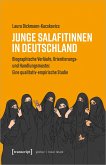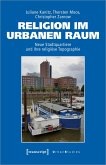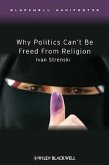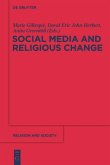The new edition of Steve Bruce's Fundamentalism grapples with the combination of social strains and religious ideas that have produced an explosion of fundamentalist activity in the wake of 9/11.
In a direct and punchy style, the new edition of his book investigates what lies behind the actions of Al-Qaeda, suicide bombings and the 'war against terror', and also gets to grips with the continuing rise of the Christian Right in the USA. It offers new insights into the Protestant fundamentalism of the American political right-wing, looking at the influence issues such as abortion, gay rights and 'intelligent design' have had on US foreign policy and domestic politics.
Bruce's broad sociological analysis rejects the narrowly-conceived notion that fundamentalists are suffering from some kind of abnormal psychology, persuasively demonstrating fundamentalism's importance as a symptom of rapid social change.
Social science has generally focused on the social circumstances that produce extremist movements and regarded their religious ideologies as window-dressing. This study takes the religious elements of fundamentalism seriously.
Topics tackled in the book include:
_ Why are some religions more likely than others to produce fundamentalism?
_ Why do they differ in their willingness to use violence to pursue their goals?
_ Does fundamentalism pose a serious challenge or sustainable alternative to the secular, liberal democracy of Western society?
This thought-provoking and highly topical book will be essential reading for students of any discipline drawing on the sociology of religion. It will also appeal to those beyond the academic community who want to know what fundamentalism really means today.
Hinweis: Dieser Artikel kann nur an eine deutsche Lieferadresse ausgeliefert werden.
In a direct and punchy style, the new edition of his book investigates what lies behind the actions of Al-Qaeda, suicide bombings and the 'war against terror', and also gets to grips with the continuing rise of the Christian Right in the USA. It offers new insights into the Protestant fundamentalism of the American political right-wing, looking at the influence issues such as abortion, gay rights and 'intelligent design' have had on US foreign policy and domestic politics.
Bruce's broad sociological analysis rejects the narrowly-conceived notion that fundamentalists are suffering from some kind of abnormal psychology, persuasively demonstrating fundamentalism's importance as a symptom of rapid social change.
Social science has generally focused on the social circumstances that produce extremist movements and regarded their religious ideologies as window-dressing. This study takes the religious elements of fundamentalism seriously.
Topics tackled in the book include:
_ Why are some religions more likely than others to produce fundamentalism?
_ Why do they differ in their willingness to use violence to pursue their goals?
_ Does fundamentalism pose a serious challenge or sustainable alternative to the secular, liberal democracy of Western society?
This thought-provoking and highly topical book will be essential reading for students of any discipline drawing on the sociology of religion. It will also appeal to those beyond the academic community who want to know what fundamentalism really means today.
Hinweis: Dieser Artikel kann nur an eine deutsche Lieferadresse ausgeliefert werden.









